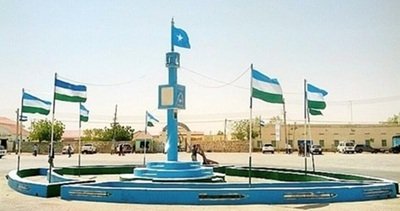Garowe (WDN) – The Mayor of Garowe, the capital of Puntland State, long regarded as Somalia’s beacon of democracy — a new chapter of authoritarianism is unfolding. It began quietly, with a single sweeping decision by Mayor Abdulkadir Geeddi, who without consultation or legal basis, banned all political gatherings in the city.
For Puntlanders, it was a stunning blow. Since its establishment in 1998, Puntland has stood proudly as the mother of federalism in Somalia — a region that embraced democracy, constitutionalism, and rule of law while chaos engulfed much of the country. But now, for the first time in its history, a local official has dared to strangle the very freedoms that built Puntland’s reputation.
The mayor’s directive prohibits political meetings in all hotels and civil venues in Garowe, including gatherings of legally registered political associations. No exceptions were made — not even for parties born out of Puntland’s contentious 2023 constitutional amendments.
In a city that prides itself on being the antithesis of Mogadishu — where opposition figures struggle to secure venues to meet — Mayor Geeddi’s edict was seen as a dangerous shift. “We fought so that Puntland would never become like Mogadishu,” lamented one Garowe elder. “Yet here we are, watching our capital sink into the same darkness.”
The Mayor’s order, issued without consultation, violates Articles 14 and 15 of the Puntland Constitution, which guarantee freedom of expression and assembly. Under the Constitution, such rights can only be suspended during a state of emergency declared in accordance with Article 29. No such declaration has been made. In effect, Mayor Geeddi’s move is seen by many as an unlawful suspension of Puntland’s Constitution.
Mayor Geeddi lacks the fundamental principles of democratic governance, a fact that may explain his ignorance and disregard for constitutional norms and the absence of any legal counsel in his decision-making. “The man is acting in isolation, without even the decency to consult the city’s legal advisors or constitutional court,” one Garowe lawyer noted.`
“This is not a crisis of the Constitution. This is a crisis of leadership,” said a former Puntland official. “Mayor Geeddi is an elected official, not an appointee, yet he governs as though he owes no explanation to the public or even to the city council that selected him.”
More alarming to Puntland’s democracy advocates is the deafening silence from key institutions. Neither the Puntland Human Rights Defender nor the Puntland Non-State Actors (PUNSAA) have publicly condemned the Mayor’s unconstitutional ban. The Ministry of Interior has also remained silent, raising questions about the government’s willingness to defend the rule of law.
“This is not just about politics,” warned a university lecturer in Garowe. “This is about whether Puntland remains the shining example of constitutional rule in Somalia or slides into the authoritarianism we escaped in 1991.”
Now, all eyes turn to President Said Abdullahi Deni, who is expected to return from abroad this week. Many hope he will swiftly intervene to reverse what they see as a dangerous precedent. “President Deni cannot allow Garowe to become another Mogadishu where the opposition is locked out of every hotel and every hall,” said a prominent Puntland lawmaker.
Puntland remains Somalia’s only federal state with a functioning constitutional court — a rare institutional safeguard in a fragile region. But if that court is bypassed, and mayors are allowed to act without checks and balances, Puntland risks losing the very identity that made it the model for Somalia’s federal experiment.
“This stain on Puntland’s honor must be cleaned,” said a former judge. “And it must be cleaned now — before it spreads.”
WardheerNews


Leave a Reply